
The anterior cruciate ligament or the ACL is one of four major ligaments in the knee. It is by far the most commonly torn ligament in the knee. ACL tears in children are occurring at an alarming rate. It is very important for parents, coaches, therapists and athletic trainers to understand that the decision making regarding surgical or non-surgical management of ACL tears in children is different than tears in an adult.
The most common cause of injury to the ACL is a non-contact twisting injury.
When the ACL tears, the knee becomes unstable. That means it will give way and not be able to support the knee when your child pivots, turns or twists. When the knee gives way or buckles there is a significant risk of further injury to the meniscus and the articular cartilage or cushioning of the knee. Many children who suffer delay surgery will experience meniscus tears and secondary injuries that put them at higher risk for developing arthritis. ACL tears in children present the child, the surgeon and the parents with a set of (very) difficult decisions to make.
Why do we manage ACL tears in children and adults differently?
Many adults can delay surgery to reconstruct the ACL, or avoid it altogether because they will change their activity level to suit their knee’s ability to cooperate with them. Children on other hand do not curb their activities and potentially go on to suffer significant secondary changes that can have lifelong implications. Surgery to reconstruct the ACL in a child is not without risk… but those risks are manageable as are any complications which may arise.
You as a parent have some tough decisions to make.
Transcript:
ACL Tears in Children
Good morning this is Howard Luks, this is your Orthopedic Minute.
I have seen a number of ACL tears, tears to the Anterior Cruciate Ligament in children over the last few weeks. One disturbing trend is that these children who were initially seen or diagnosed a number of months ago — many have gone on to develop secondary changes or secondary injuries to the knee. The reason for that is children’s knees become very unstable or loose after an ACL tear. That puts them at significant risk for developing secondary injuries such as meniscus tears or injuries to the articular cartilage or the cartilage at the end of the bones.
That becomes a significant issue when we are talking about the longevity of the knee or them being able to use their own natural knee going well into their 50s and beyond.
The treatment of pediatric tears of the ACL has changed or at least our thoughts have evolved recently. There are different risks involved in reconstructing or rebuilding an ACL in a child because they have open growth plates. So theoretically there is a risk that we can injure those growth plates during the ACL reconstruction which will lead to certain deformities. However, those risks are pretty small and we can usually deal with the problem if it arises.
So — parents, you have a difficult decision to make. The issue is you can’t keep your child still, You cannot keep your child from being active. So, therefore, they have continuous buckling or giving away episodes, their knee swells — which means that they have incurred further damage to either the meniscus and the cartilage disks in the knee or the articular cartilage at the ends of the bones.
I tend to favor an early reconstruction in a child to stabilize their knee and protect it from further damage. Again there are risks — but the risks of having a complication related to the surgery to reconstruct the ligament are small compared to the risks to the knee of continued buckling and instability and giving way — which are very significant risks.
Something to think about — and something to consider.
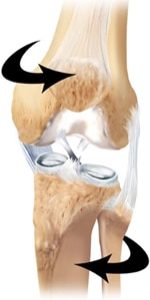


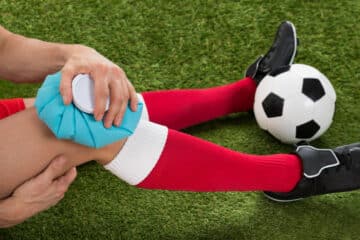
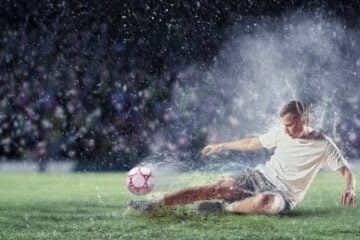
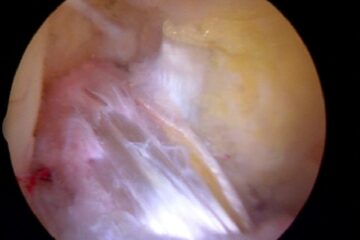
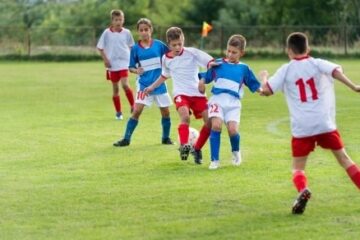








How concerned should I be for my son having ACL repair that could disturb his growth plate?
HI Amy …
There is a risk to the growth plate in traditional ACL surgery. Usually that risk is small. Th risks is also based on your child’s current age and their skeletal age. Once a child is nearly skeletal maturity then the risk is low. ACL reconstructions in very young children (6-10) have a higher risk of growth plate injury. In those children there are physicians who can perform a procedure which does not violate the growth plates.
Hope that helps…
This is a hard decision to make… but children will not rest or stay still — so they can cause a lot of harm to their knee if they do not have their ACL reconstructed.
Hi, My 12 year old daughter (National level pentathlete and hockey player) has ACL and torn meniscus. Her surgeon is recommending physio and waiting to avoid surgery.
I would consider a few more opinions… especially by Sports docs who treat very young athlete ACL injuries. Many surgeons are very uncomfortable managing an ACL injury at this age because of all the risks of surgery, and the risks of recurrent injuries etc.
My 7 year old son has injured his ACL (high grade partial/ full). The surgeon advised me the consequences of having and not having the surgery. Both options come with its own challenges. I cannot decide which is a better option. My son has fallen twice after the injury and I have been using the knee brace to stabalise the knee. I am ok if he doesn’t play actual competitive sport but I would like him to be able to run and play normally like other kids. Can you please advise if you think we can wait until he is bit older and will his injury heal by itself and be any better with time?
I will really appreciate a response. I am devastated since this has happened.
Thanks,
Rouble
Hi..
The research shows that these children are at high risk for secondary injuries – meniscus tears, cartilage injuries, etc — if their knee is not stabilized. That’s usually because their knees remain unstable… and they really can’t abide by most precautions or limitations very well.
There are a few Pediatric Sports Docs or Pediatric Ortho surgeons who specialize in ACL injuries in children this young. They typically should not have the standard surgery we perform in older children or adults. It would be worth your time/effort/travel to speak to one of these highly trained Peds docs.
Good luck